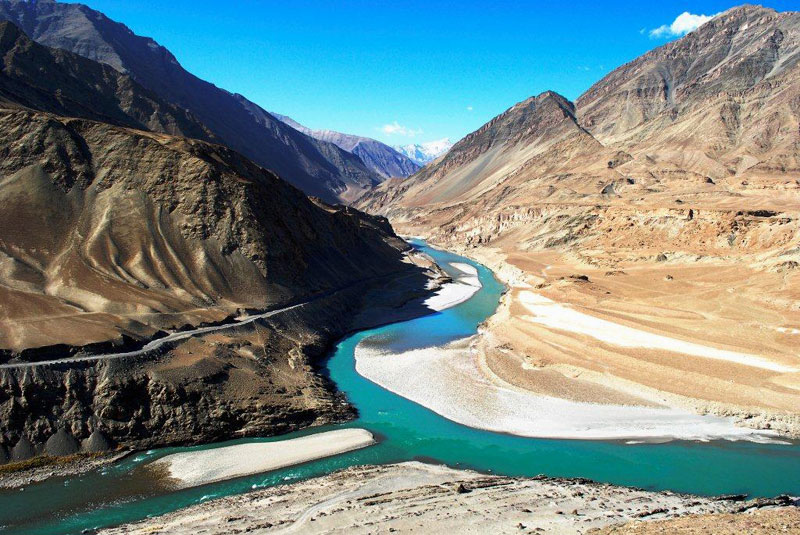
LEH – In a landmark step toward environmental protection, the Union Territory of Ladakh has launched a mission-mode clean-up campaign along the Indus River, stretching from Upshi to Phey, with a firm stance of “Zero Tolerance Against Pollution.” The initiative was inaugurated during a high-level meeting chaired by UT Ladakh Chief Secretary Dr. Pawan Kotwal, alongside Chief Executive Councillor (CEC) of the Ladakh Autonomous Hill Development Council (LAHDC) Leh, Advocate Tashi Gyalson.
The campaign is designed to tackle the growing issue of pollution in the Indus River, often regarded as the lifeline of Ladakh, and aims to introduce long-term changes in waste management, public behavior, and legal enforcement throughout the Leh district.
The action plan follows CEC Gyalson’s proposal, which called for urgent administrative and community-based efforts to safeguard the river. Dr. Kotwal emphasized that the drive must go beyond symbolic efforts and deliver a lasting, measurable impact. “This is a shared responsibility,” he stated, “involving civilians, security forces, tourists, and local communities.”
Key Measures and Strategies
Among the primary directives, Dr. Kotwal advocated a ban on small plastic water bottles, recommending instead the use of 2-litre containers to curb plastic pollution. He urged the use of awareness tools such as signs, advertisements, and flyers. He also called for the involvement of religious leaders to connect with the moral and spiritual sentiments of the people. “When faith speaks, people listen,” he remarked, underscoring the sacred value of the Indus.
The campaign also places strong emphasis on legal enforcement. Dr. Kotwal called for stringent laws to penalize those polluting the river and asked that agencies such as the Indian Army, Border Roads Organisation (BRO), Indo-Tibetan Border Police (ITBP), paramilitary forces, and the Indian Air Force take stewardship of riverbanks near their installations.
Comprehensive District-Level Mobilization
Leh Deputy Commissioner Romil Singh Donk provided updates on the two-week campaign, noting that the groundwork had already been laid through consultations with Goba and Nambardars across the district. He added that the clean-up would extend beyond the Indus to include tributaries like the Zanskar, Singhey Lalok, and other water bodies in the Sham Valley.
“This is a united district-wide movement that spans every village cluster,” Donk said.
CEC Tashi Gyalson emphasized the spiritual importance of the Indus, citing appeals made by His Holiness the 14th Dalai Lama in 2022 and Skyabgon Chezang Rinpoche more recently. “The Indus is not just a water source,” Gyalson said, “it is the spiritual and ecological lifeline of Ladakh and must be treated as sacred and untouchable.”
